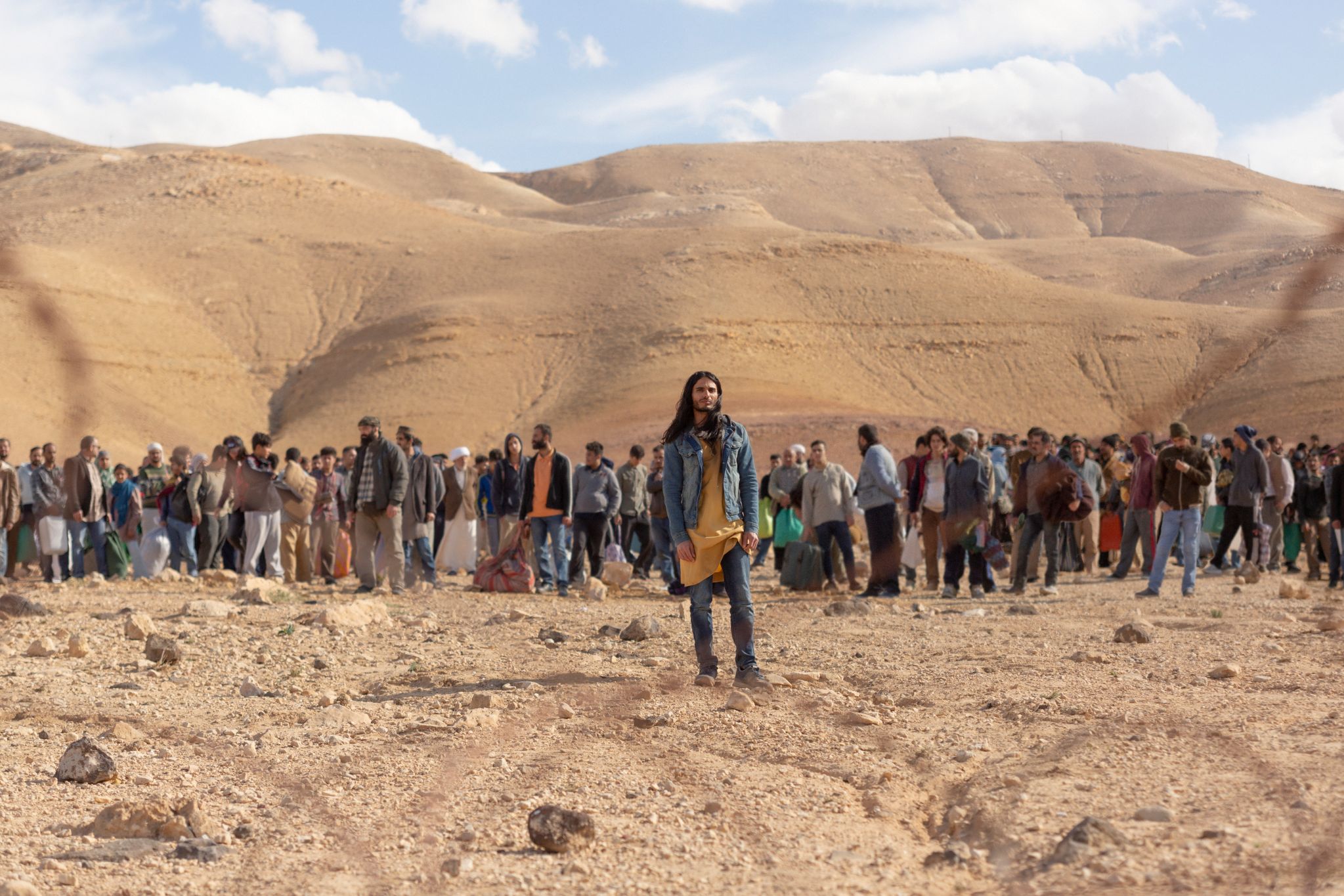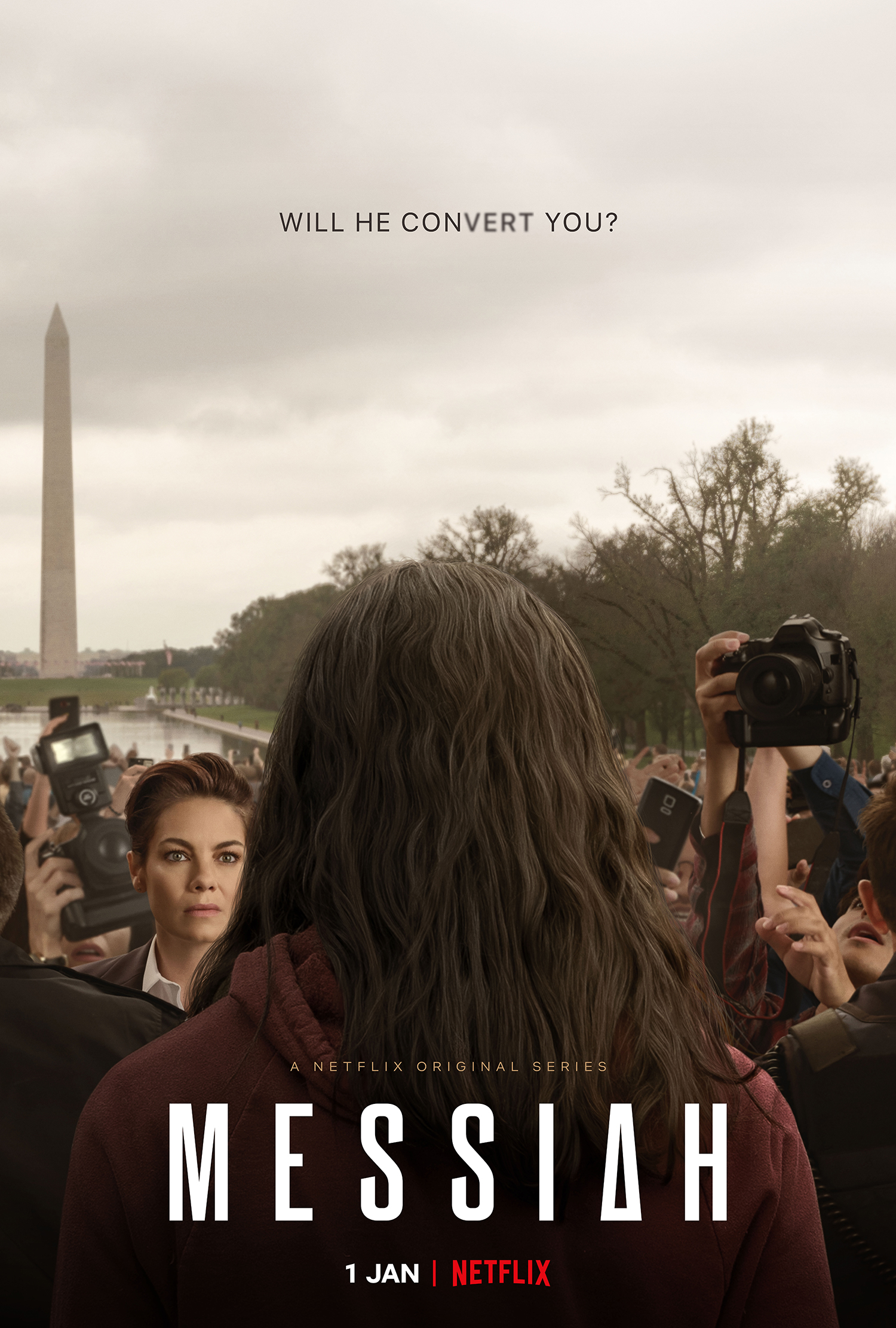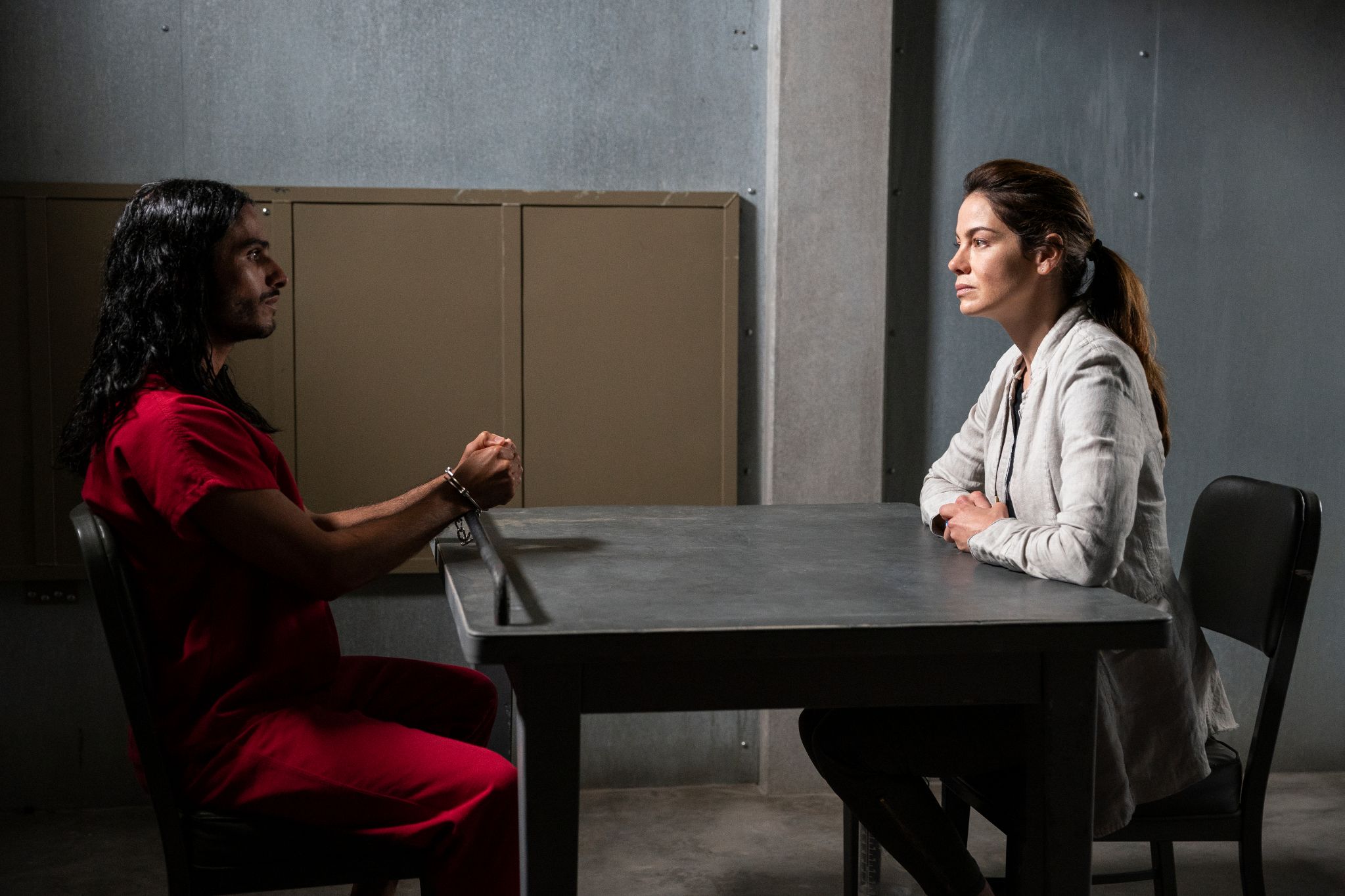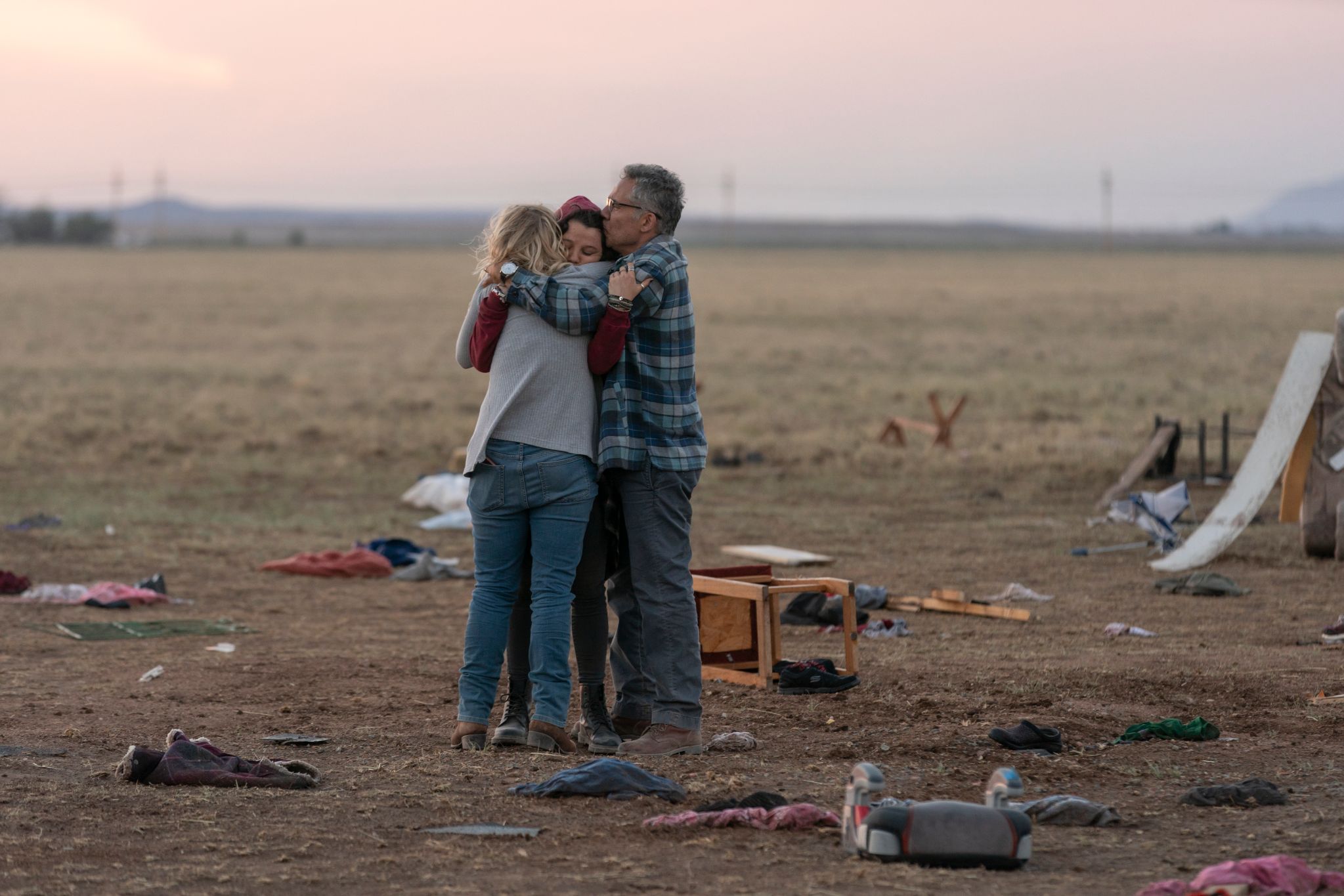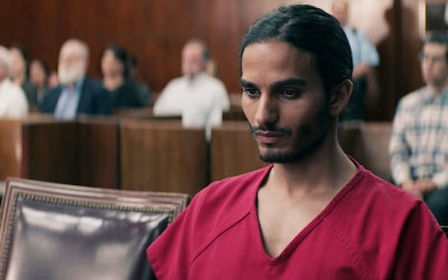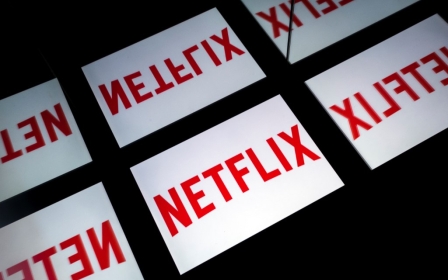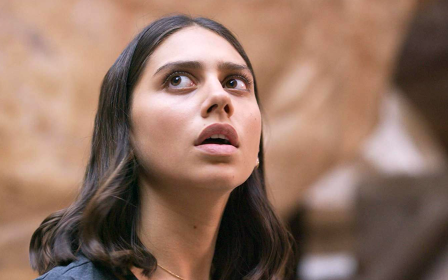Stereotypes and suicide vests: The 'Messiah' is a travesty of Biblical proportions
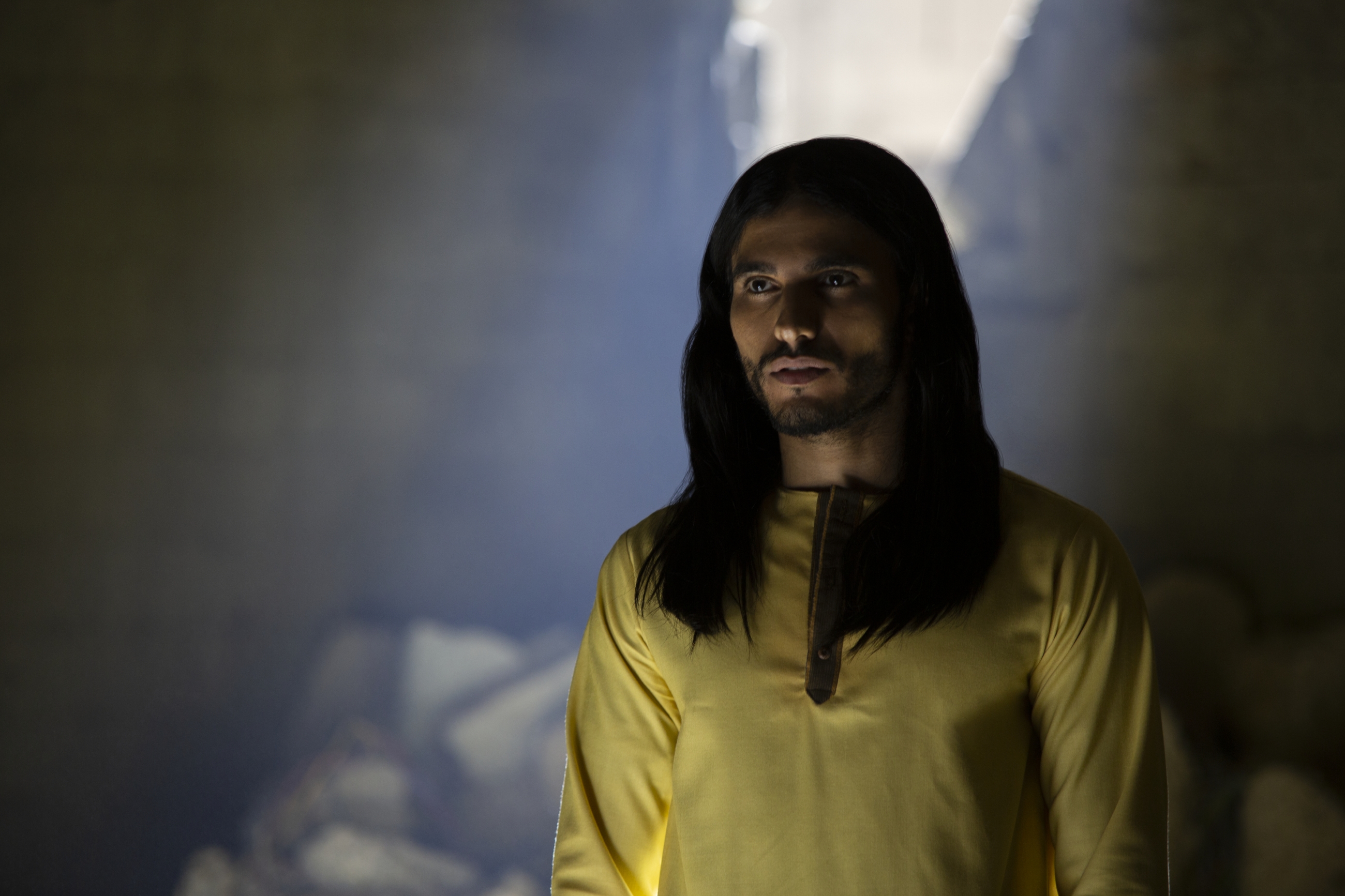
This is a spoiler-filled review of the new Netflix series Messiah. If you’re looking to watch the show, don’t bother. We’re here to save you.
It starts with a sandstorm and ends with a flowerbed.
But little in between can save this bizarre 10-part-series from the stink that it is.
New MEE newsletter: Jerusalem Dispatch
Sign up to get the latest insights and analysis on Israel-Palestine, alongside Turkey Unpacked and other MEE newsletters
Peddling in tired tropes, boorish acting and a rudderless plot, Messiah is neither a show about a religious figure that captures the imagination of thousands of followers, nor is it about the flammable nature of social media in creating a movement or hysteria.
What it is about, I’m not quite sure.
Is Al-Masih (played by Mehdi Dehbi) the Messiah (the anti-Christ or Dajjal as many Muslims suspect), or is he a state-sponsored mass social disruptor as the CIA agents in the show suspect? It’s anyone’s guess.
The plot lingers for so long and Al-Masih remains so untenably humourless that before long you’re hoping the script kills them all.
But let me give you a quick recap of all 10 episodes of which I binged on earlier.
A series of events take place in Syria, and then alongside the Syria-Israeli border, that grabs the attention of both the CIA and Mossad. Al-Masih then appears to perform a miracle at the Al Aqsa Mosque in Jerusalem before disappearing. He then reappears at an evangelical church in Texas. Yep, you read that right, an evangelical church in Texas.
He then saves a teenage girl and the town’s church from a tornado and manages to gather a following of hundreds who go with him to Washington DC. It’s here that he walks on water at the Lincoln Memorial Pool.
Move over Forrest Gump, there’s a new iconic scene in town.
Losing your religion
Meanwhile the CIA and Mossad (and federal authorities) are watching his every move, determined to out him as a charlatan.
Sounds exciting right? Don’t be so sure. The dialogue is unadventurous and contrived.
Consider this line: “Why don’t you GPS it?” the pastor’s daughter asks when the family is heading to somewhere and nowhere as they follow the Messiah.
“You need a destination for that,” the pastor replies, dryly.
Messiah’s script is so badly disjointed, it’s enough to make you lose whatever faith you might have in religion.
Also, no story about western civilisation reaching an impasse would be complete without tortured CIA or Mossad operatives.
Aviram Dahan (Tomer Sisley), the Mossad agent, for instance, is tortured by the fact he has killed a 14-year-old Palestinian boy years earlier. His pain is central; justice for the boy peripheral and irrelevant.
Then there’s special agent Eva (Michelle Monaghan), who sees it as her God-given task to discover if the man called the Messiah is the real deal or a charlatan hoping to spread social discord.
Eva, an agent with the CIA - an organisation that was involved in and supported several coups across the Middle East, Asia, Africa and Latin America, where it installed dictatorships and spread mayhem - thinks it’s her and America’s job to try and stop discord.
Insert Facepalm emoji.
What’s even more surprising is that for a show to have been co-created by Roma Downey (The Bible mini-series), we’re also presented with a very rudimentary take on religion. The series strips down faith and belief as being motivated purely by seeing miracles.
Stereotypes and suicide vests
The writers' decision to juxtapose Palestinian refugees from the Yarmouk refugee camp in Syria, and those in the occupied West Bank, with white evangelical Christians with SUVs in the US is also an egregious comparison.
While white working-class Christian Americans are stereotyped as broke(n), dysfunctional and dimwitted, the Palestinians are associated with suicide vests and terrorism.
By linking Palestinian rights for freedom to an ambiguous and ambivalent character, who may or not be a messiah, the series attempts to fictionalise a people’s ambition.
Al Masih is later identified as Payam Golshiri, an Iranian with “a messiah complex”, adding to all the confusion.
This is not to say that there aren’t interesting hints that this is a story that is yet to properly unfold.
The critical reference to "eye of the storm" (in reference to the one-eyed man Muslims believe fits the description of the dajjal) by the pastor’s daughter, as well as the mystery surrounding a Palestinian boy named Jibril Medina (Sayyid El Alami) nothwitstanding, Messiah is such a bizarre patchwork of narratives, from the war in Syria, the Israel-Palestinian conflict, Christian evangelicals and manifest destiny - that most clues are likely to fall by the way side.
And clarity is in short supply.
It’s only after al-Masih is kidnapped by the Secret Service and given a sit-down with the president of the United States (this comes after some 300 minutes of viewing time) that he finally gives a straight answer to what he wants.
For the typical jingoistic American audience, his call for US troops to be withdrawn from all territories around the world is shocking and unthinkable. For the rest of us citizens from “shithole” countries, the request is a little underwhelming.
You have to wonder: Wouldn’t Jesus also call for a change to the financial system? Wouldn’t he want the redistribution of wealth and a bigger commitment from the G8 to tackle climate change? Don’t we need an overhaul of...well, biblical proportions?
Clearly, this guy hadn’t come prepared.
“This is a war of ideas,” special agent Eva says to a superior.
Yes, a poorly conceived one.
The views expressed in this article belong to the author and do not necessarily reflect the editorial policy of Middle East Eye
Middle East Eye delivers independent and unrivalled coverage and analysis of the Middle East, North Africa and beyond. To learn more about republishing this content and the associated fees, please fill out this form. More about MEE can be found here.


